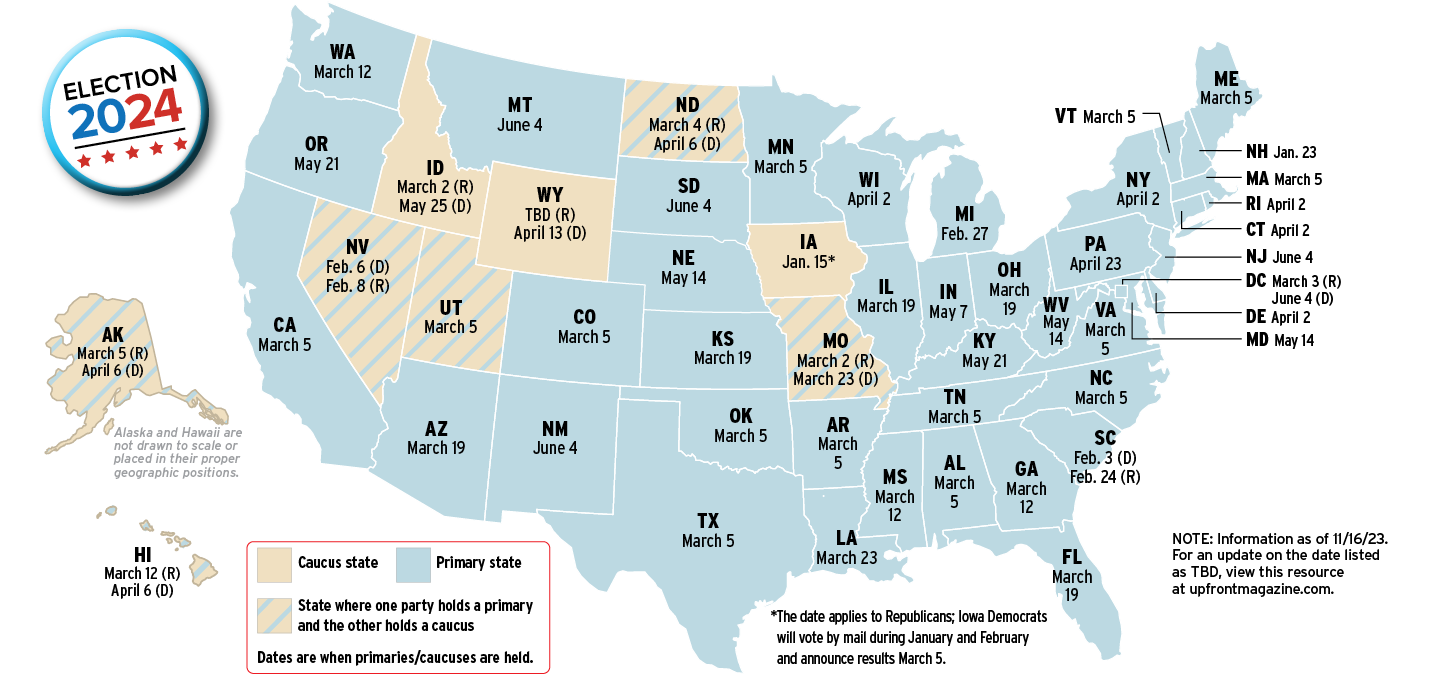Every four years, Americans select a president. Election 2024 officially kicks off this month with the Iowa caucuses on January 15. At press time, nine candidates were still vying for the Republican nomination, but former President Donald Trump held a wide lead in polls. The primary process determines which Republican will challenge President Biden—who hasn’t faced serious opposition for the Democratic nomination—in November’s general election.
Every four years, Americans select a president. Election 2024 officially kicks off this month with the Iowa caucuses on January 15. At press time, nine candidates were still vying for the Republican nomination. Former President Donald Trump held a wide lead in polls. The primary process determines which Republican will challenge President Biden in November’s general election. President Biden hasn’t faced serious opposition for the Democratic nomination.

